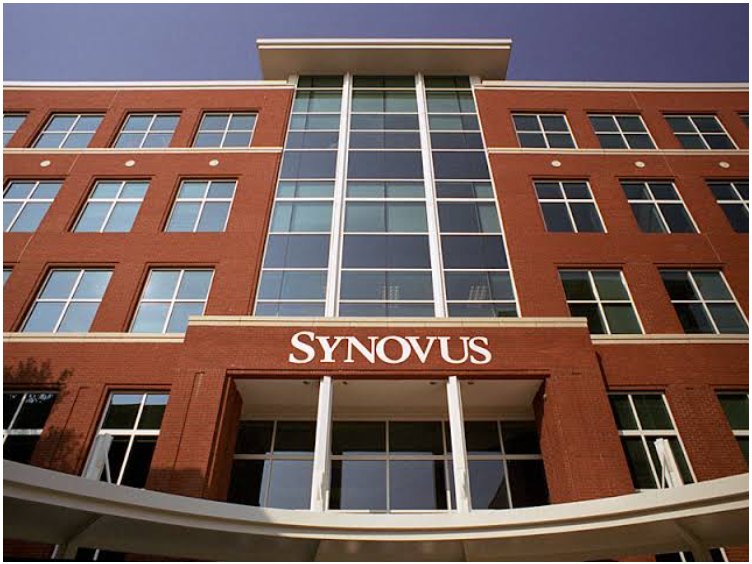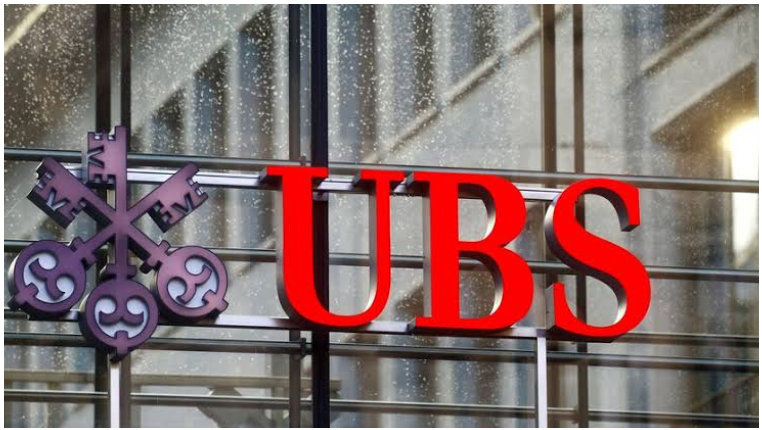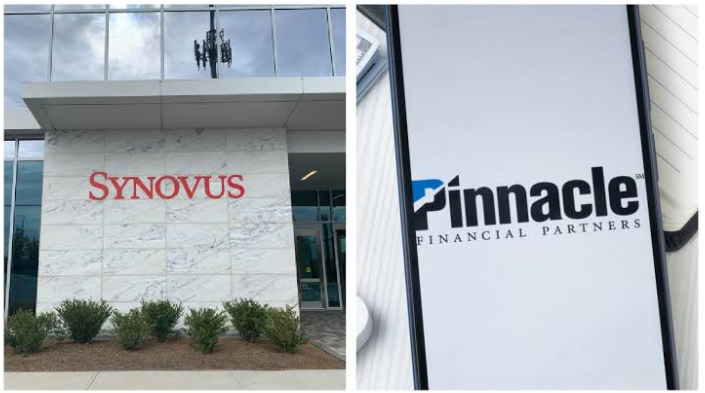Shares of Synovus Financial Corporation (NYSE: SNV) declined after a slew of sell ratings came in for the stock. The cascade of sell orders began with UBS.
Shares of SNV dipping came as a sign of anxiety among investors. At the same time, shares dropped by 1.3%. For a good number of investors, downgrades forewarn of worse things to come.
Institutional investors have the tendency to act swiftly on such signals. This set off a chain reaction for more stock to be sold. The way the stock market reacted is a combination of the downgrade and the increased worries of regional banking.
Synovus shares fall as UBS sparks a wave of sell ratings.
What caused the Synovus Financial share drop?
Previously, Synovus shares remained steady until there was news of a potential merger. Pinnacle Financial Partners indicated interest in merging with Synovus.
This news, multifaceted and surprising, sparked a panicked reaction of sell-offs, causing a rapid decline of 8.3% to 15% over different intervals.
The attention swiftly turned from the positive statements Synovus executives gave to the integration concerns. Instead of a warm welcome, there were a lot of concerns.
UBS’ downgrade of SNV amplifies uncertainty
The UBS downgrade of the SNV rating reinforced the negative sentiment. Analysts were beginning to doubt that Synovus could handle a big merger while also protecting results in the near-term.
Downgrades are known to trigger selling, especially from large funds. Such an explanation was likely behind Synovus’s struggle to maintain its stock price. The fears related to the merger, combined with the rating change, were too much to bear.
The ongoing downward trading of SNV stock shows the fragile nature of investor sentiment in a risky environment. On one hand, the investors considered the strategic opportunities, but on the other hand, the investors focused on the near-term implementation risks.
UBS downgrade fuels doubts over Synovus’ merger readiness and near-term performance
Merger terms reshape ownership balance
As outlined in the merger terms, Synovus shareholders will hold 48.5% of the new company, while Pinnacle investors will own 51.5%. Synovus’s 61.18 per share valuation marks an 8-10% premium on the company’s pre-deal valuation.
Meanwhile, leadership will change. Synovus’s Kevin Blair will take over as president and CEO, and Pinnacle’s Terry Turner will chair the board. Management shared that the agreement was “transformative” and that they planned to form one of the Southeast’s largest banks. If anything, investor scepticism was felt in the drop of Synovus Financial shares.
Will the merger dilute shareholder returns?
The deal raised dilution concerns. Shareholders of Synovus stand to lose with the new split of ownership, and some felt the offered premium did not compensate for that loss. Deals involving banks are known to be intricate.
Analysts pointed out that efficiency returns could take a long time to materialise, as they can take a long time to achieve due to the challenges posed by operational integration, technology alignment, and even culture matching. Synovus Financial’s sharp drop in share price is indicative of the fact that shareholders—like the lenders—are very cautious of the risks in the near term. The execution risks, in particular, continue to preoccupy them.
Integration bets aside, there are reasons to be hopeful for gains in the long run. If the integration is successful, greater scale and broader lending capacity would be stepping stones to unlocking value. Patience will be critical for investors.
Synovus-Pinnacle merger grants shareholders 48.5% stake, with 8–10% premium on valuation
What lies ahead for Synovus Financial stock?
The transaction is pending regulatory clearance, with completion anticipated by the first quarter of 2026. It is reasonable to expect fluctuations in volatility throughout this timeframe.
The future returns of Synovus Financial shares will likely be influenced by a mixture of external and internal factors. Interest rate changes, together with loan demand, will have an impact on revenue, while the sentiment will be influenced by the integration progress.
Analysts have pointed out that investors need to focus on earnings and regulatory news. This is because positive news on the progress of the merger can calm the shares. Unfortunately, at the moment, the markets are somewhat pessimistic. The declining SNV stock share illustrates the widespread suspicions regarding the execution and timing.
Investor Outlook
Investors will compare immediate hurdles with possible long-term benefits. The all-stock deal offers scale, yet Synovus’ execution is still in question. Regional banks are now dealing with stricter regulations, heavier capital requirements, and a more challenging operating environment, a situation Synovus and Pinnacle also face.
These concerns were underscored in UBS’s downgrade. The firm cut its near-term profitability forecasts. Market scepticism is likely to continue in the absence of a compelling integration strategy from Synovus.
There are, however, opportunities to pursue. Larger balance sheets could enable growth. The combined entity might be able to compete better in the high-growth Southeast markets.
For now, however, caution dominates. The Synovus Financial share drop shows that investor trust must be rebuilt.
Also Read: Westpac Share Price Moves as Business and Wealth Division Posts Strong Growth
FAQs
Q1: What caused Synovus Financial shares to decline?
A1: The shares declined after UBS issued a downgrade for SNV and following Pinnacle’s acquisition announcement valued at $8.6 billion.
Q2: How much did the shares of Synovus Financial fall?
A2: The shares went down by 8% to 15%, depending on the trading periods reported.
Q3: What’s the deal for the merger?
A3: Pinnacle shareholders will be entitled to 51.5% of the new entity, while Synovus shareholders will keep 48.5%. Synovus is priced at $61.18 per share.
Q4: By when is the merger anticipated to conclude?
A4: The deal is expected to conclude in the 1st quarter of 2026, pending regulatory approvals.










